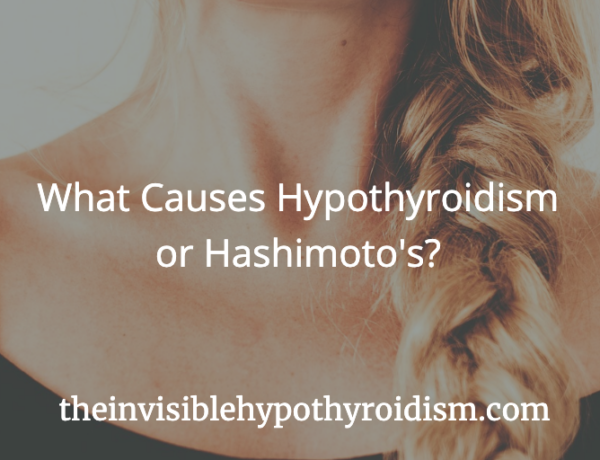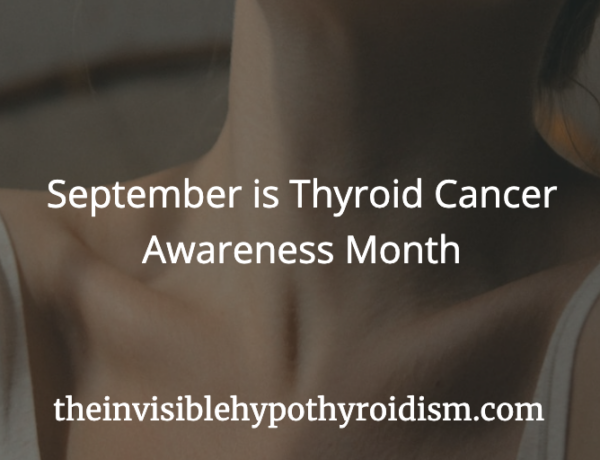Our expectations of what it’s like to live with a thyroid condition verses the actual reality can be quite different. How many of us are told that treatment and management are straight forward, yet they turn out to be anything but?
Written by Nadha Hassen, Thyroid Cancer Survivor
Thyroid Cancer: Expectations vs. Reality
September is Thyroid Cancer Awareness Month. Incidentally, it is also the month when I had my total thyroidectomy five years ago.
As I approach this milestone, I have reflected quite a bit on the difference between expectations and reality. My personal experience with thyroid cancer and the reality of it was very different from what I anticipated and from what I was led to expect.
What The Doctors Said
All my doctors were saying that after my surgery and thyroidectomy, I would go on this little pill that would replace my thyroid functions completely and that my life would go back to normal. Prior to my actual diagnosis, I was told time and time again that thyroid cancer was “highly unlikely” in my case, informed that we didn’t even really need to do a biopsy and was questioned regarding my decision to do a biopsy versus just monitoring the lump on my neck – because it was most likely benign.
After my diagnosis, I was informed time and time again that thyroid cancer was easily treatable, had a great prognosis and anyway, it was the “best cancer to have”. I was also told that I was unlikely to need further treatment.
What I Expected
Now to be clear, I am incredibly grateful that thyroid cancer usually has a good prognosis. It needs to be said because too many people often find it necessary to remind me of that fact. I am well-aware. Too often, we forget that people should be given the space to feel all the emotions that come with a diagnosis, feelings that should not be minimised.
So I went into treatment with equal parts resigned determination and cautious optimism. I had a plan and was ready to take on what came my way. I didn’t have too many expectations, but I did have enough of them.
I would go back to school and complete my Master’s degree.
I would get back to doing my work.
I could move on with my life and forget about it all.
And sure enough, I moved on with my life but my reality looked different.
The Reality
I needed to get radioactive iodine (RAI) treatment because I had an aggressive variant and the cancer had already spread into some of the surrounding lymph nodes.
I needed to go on medical leave from school so I got my degree later than I expected.
Being in isolation for three days during RAI while being severely hypothyroid was lonely, frustrating and exhausting – no matter how prepared I was to entertain myself and how comfortable my family had helped make the lead-lined room.
I had to deal with severe chronic symptoms and shortly after my RAI treatment, I was diagnosed with fibromyalgia.
When I went back to work, I had to negotiate work accommodations with a not-so-understanding boss man.
I began to feel like I needed to prove myself at work and show that I was worth keeping around. So I pushed myself.
My quality of life was much worse than I expected because well, for one, I no longer had a thyroid and two, treatment took its toll on my body.
Reflecting Now
I have figured it out every step of the way and continue to do so. I have grown so much in these past five years and I am finally feeling better than I have in a long time.
The truth is that reality was much harder than I expected. It was so much harder than any of my health care providers led me to believe. And it’s okay to stay positive and expect the best. There are definite advantages to having a positive outlook. However, it is important not to underestimate thyroid cancer and the impact it can have on your life, especially your quality of life.
Over the years, I’ve connected with so many people who didn’t have the right (or enough) information, resources and support to stop things from getting really bad. It’s important to be as proactive as possible when it comes to your health, understanding the function of the thyroid and the potential impacts of not having it anymore. As unfair as it is, many patients with thyroid cancer have had to advocate for themselves in order to be heard or be taken seriously by health care providers.
Unfortunately, I continue to have my symptoms minimised and so it is necessary for me to be an active participant in my health and to advocate for what I need. It’s important to stay informed, be proactive and flexible in negotiating all the transitions that thyroid cancer will bring.
by Nadha Hassen, MPH, PhD student
Nadha Hassen is a health researcher and chronic illness advocate
As someone living with thyroid cancer, she is passionate about sharing knowledge and resources to guide others with thyroid issues to advocate for themselves and live fully, consciously and with joy.
Her work for Thyroid Transitions can be found across facebook and instagram.
If you would like to submit a guest post, whether you’re a thyroid patient, doctor or anyone else, please get in contact.
You can click on the hyperlinks in the above post to learn more and see references to information given.





